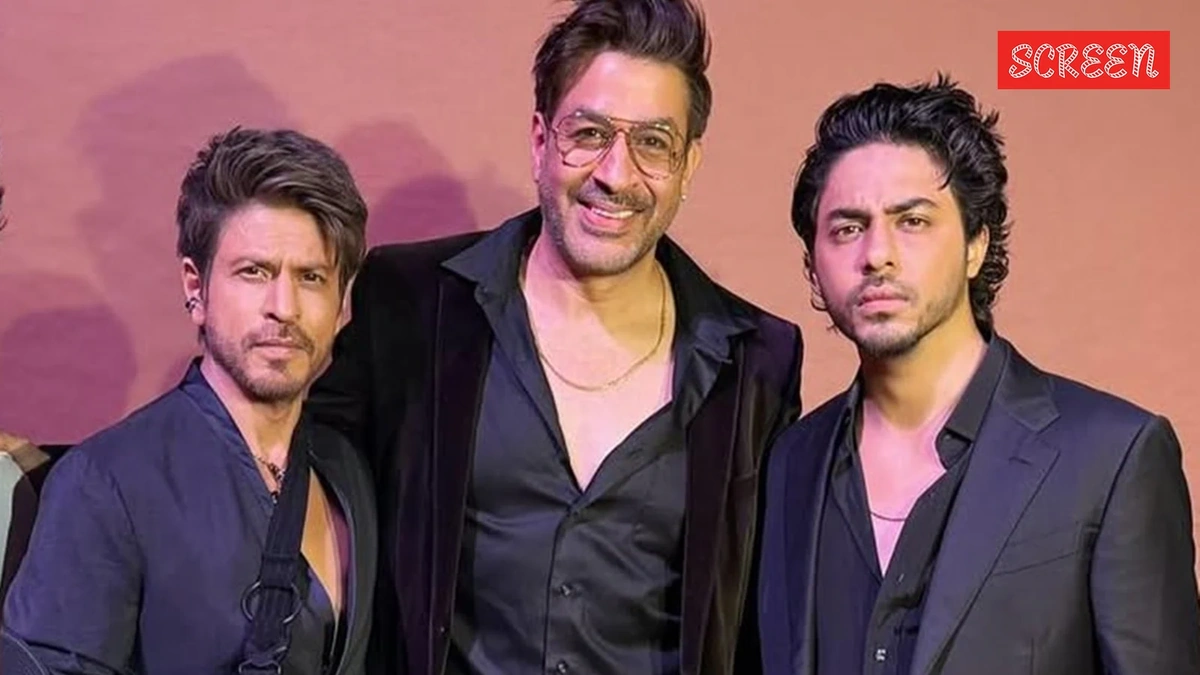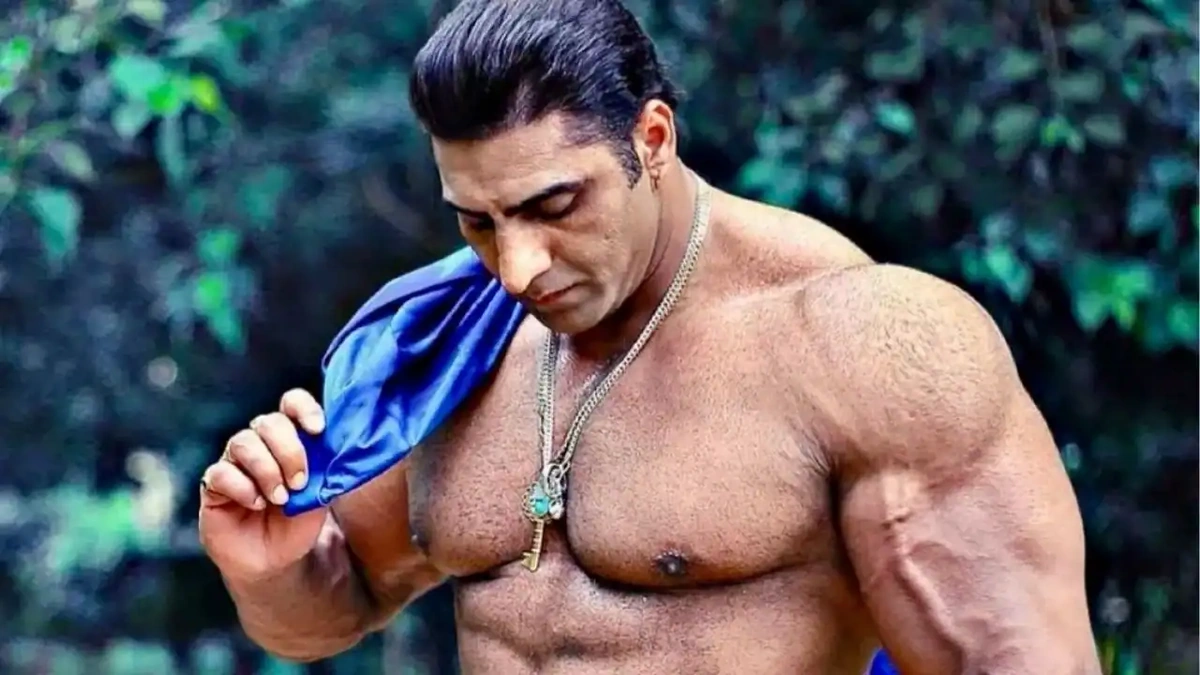Aryan Khan Addresses ‘Real-Life Inspired Scenes’ in Wake of Sameer Wankhede Defamation Lawsuit
The world of Bollywood, with its glitz, glamour, and often, its controversies, has once again found itself under the spotlight. This time, it involves Aryan Khan , son of superstar Shah Rukh Khan, and the fallout from the infamous drug bust case. But this isn’t just another celebrity scandal; it’s a story that delves into themes of justice, power, and the very human tendency to draw inspiration from real life, even in the most unexpected places.
What fascinates me is how art imitates life, and sometimes, life imitates art imitating life. We’re seeing that play out in real-time here.
The ‘Real-Life Inspired Scenes’ Claim | What’s the Fuss?

So, what exactly are these ‘real-life inspired scenes’ Aryan Khan is addressing? Following the legal battles with Sameer Wankhede , the former Narcotics Control Bureau (NCB) officer, Khan has been navigating the aftermath, and now, addressing the inevitable comparisons between his experiences and creative projects he might be involved in. The crux of the matter lies in the potential use of events surrounding his arrest and subsequent legal drama as inspiration for cinematic portrayals. It’s a tricky situation, ethically and legally.
Here’s the thing: artists often draw from their own lives or the lives of others. But when those lives involve ongoing legal proceedings and sensitive personal details, it becomes a minefield. The question isn’t just about whether it’s allowed, but whether it’s appropriate.
The lawsuit filed by Wankhede adds another layer of complexity. He alleges defamation, claiming that the accusations against him are false and damaging to his reputation. This legal battle is unfolding alongside discussions about the creative liberties taken with real-life events. It’s a complex web, to say the least.
Sameer Wankhede’s Defamation Lawsuit | More Than Meets the Eye
Let’s be honest, defamation lawsuits are rarely straightforward. They hinge on intent, accuracy, and the potential for harm. In this case, Wankhede needs to prove that the statements made against him were false, that they were made with malicious intent, and that they caused significant damage to his reputation. That’s a high bar to clear.
But, and this is a big but, the lawsuit also opens up a broader conversation about accountability and the power dynamics at play. Wankhede, as a public official, is subject to greater scrutiny than a private citizen. However, he also has the right to defend his name and his career. The legal proceedings will likely be long and arduous, involving testimonies, evidence, and intense legal arguments. It will be important to follow the developments in the case .
It’s not just about the individuals involved; it’s about the system and the potential for abuse of power. It’s about the media’s role in shaping public perception and the responsibility that comes with reporting on sensitive cases.
The Ethical Tightrope | Art, Inspiration, and Real-Life Trauma
This situation brings up a crucial question: where do we draw the line between artistic license and ethical responsibility? Can artists freely use real-life events, especially those involving trauma and legal battles, as inspiration for their work? Or do they have a moral obligation to protect the privacy and well-being of those involved?
I initially thought this was a simple question of creative freedom, but then I realized it’s far more nuanced. The impact on the individuals involved must be considered. Imagine having your personal trauma re-enacted on screen, potentially distorting the truth and causing further pain. That’s a heavy burden to bear.
The legal landscape surrounding these issues is still evolving. Copyright laws protect intellectual property, but they don’t necessarily address the ethical implications of using real-life events in creative works. Libel and slander laws offer some protection against false and damaging statements, but they are often difficult to enforce. According to legal experts at Cornell Law School, defamation law varies depending on whether the subject is a public or private figure.
Ultimately, it comes down to a matter of respect and sensitivity. Artists have a responsibility to consider the potential impact of their work and to avoid causing unnecessary harm to others. That’s not to say that they should shy away from difficult or controversial topics, but they should approach them with care and empathy. And, perhaps, a healthy dose of self-awareness.
The Media’s Role | Sensationalism vs. Responsible Reporting
Let’s face it, the media loves a good scandal. And the Aryan Khan case has been a media circus from day one. But there’s a fine line between informing the public and sensationalizing a story for the sake of ratings. Responsible journalism requires accuracy, fairness, and a commitment to avoiding bias. It also requires a recognition of the potential harm that can be caused by irresponsible reporting.
What fascinates me is the power of narrative. The media can shape public opinion by choosing which stories to highlight, which angles to emphasize, and which voices to amplify. This power must be wielded responsibly.
As consumers of news, we also have a responsibility to be critical thinkers. We need to question the sources of information, to be aware of potential biases, and to seek out multiple perspectives. Don’t just blindly accept what you read or see; do your own research and form your own conclusions. The other key thing is to note any updates to the legal situation.
The case has brought Bollywood controversies to the forefront.
Lessons Learned and the Path Forward
So, what can we learn from the Aryan Khan case and the surrounding controversies? Firstly, it highlights the importance of due process and the presumption of innocence. Everyone, regardless of their background or connections, is entitled to a fair trial. Secondly, it underscores the need for accountability and transparency in the criminal justice system. Public officials must be held to the highest standards of conduct. And thirdly, it reminds us of the power of empathy and the importance of considering the human impact of our actions.
The path forward requires a commitment to justice, fairness, and responsible storytelling. It requires a recognition of the complexities of human nature and the potential for both good and evil. And it requires a willingness to engage in difficult conversations about power, privilege, and the pursuit of truth.
This isn’t just about Aryan Khan or Sameer Wankhede; it’s about the kind of society we want to create. A society where justice prevails, where truth is valued, and where empathy guides our actions.
FAQ Section
Frequently Asked Questions
What exactly is Aryan Khan accused of?
Aryan Khan was initially arrested in connection with a drug bust on a cruise ship. However, he was later given a clean chit by the NCB due to lack of evidence. The case involved allegations of drug consumption and conspiracy.
What is a defamation lawsuit, and how does it work?
A defamation lawsuit is a legal action taken when someone believes their reputation has been damaged by false statements. The plaintiff (the person suing) must prove that the statements were false, published to a third party, and caused harm.
What are the ethical considerations for artists using real-life events in their work?
Artists face ethical considerations when using real-life events, especially those involving trauma or legal battles. They must balance creative freedom with the responsibility to protect the privacy and well-being of those involved, avoiding unnecessary harm or distortion of the truth.
How has the media influenced the perception of the Aryan Khan case?
The media has played a significant role in shaping public perception of the case through its coverage, which has sometimes been accused of sensationalism. The media’s narrative can impact public opinion and influence the legal proceedings.
What are the potential consequences of a defamation lawsuit?
The consequences of a defamation lawsuit can include financial damages awarded to the plaintiff, damage to the defendant’s reputation, and legal fees. The outcome depends on the evidence presented and the court’s decision.
Where can I find accurate information about the Aryan Khan case and related legal proceedings?
You can find accurate information about the case from reputable news sources, court documents, and legal analyses. It’s essential to rely on credible sources to avoid misinformation and biased reporting.













